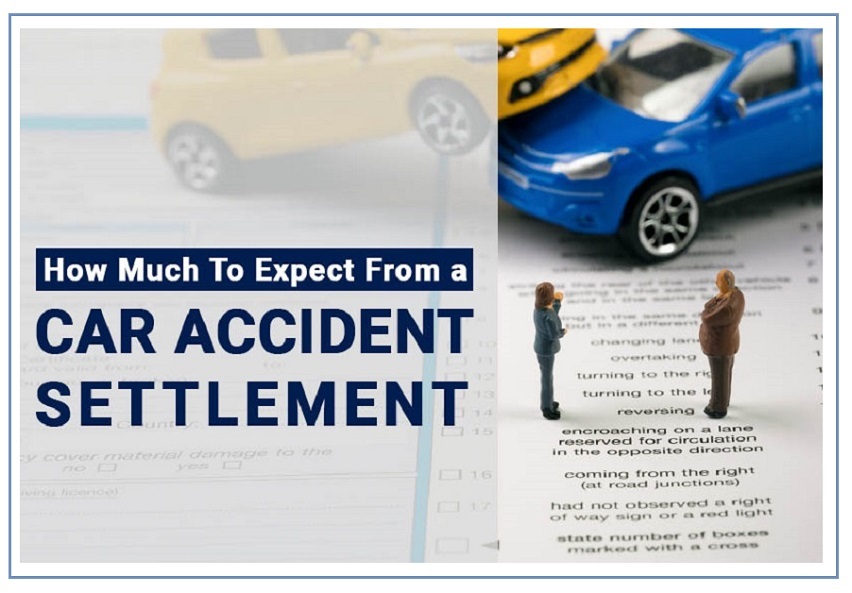No average car accident settlement exists. Each accident differs. Each settlement differs.
Many factors affect whether you receive a settlement and how much the amount of the settlement. Knowing and understanding these can help you, but ultimately, you should obtain the services of a knowledgeable attorney to maximize your settlement.
Factors Influencing a Car Accident Settlement Value
Consider the following factors that contribute to the value of a car accident settlement and discuss them with your attorney.
- Insurance: The insurance policy types carried by the drivers in the accident impact an out-of-court settlement. The maximum policy limit payouts also impact this.
2. No-fault states: Whether the state in which the accident occurred is a no-fault state impact the settlement. Some no-fault states let each insured choose between full tort or limited tort policies. Full tort insurance lets an injured party pursue both non-economic and economic damages regardless of injury severity. Limited tort policies let the insured lower premiums in exchange for waiving their rights to pain and suffering damages unless they incurred an egregious injury.
3. Uninsured drivers: The driver at-fault carried no insurance. This can require a court appearance to obtain a legal order for an award. Underinsured drivers can affect the level of settlement you obtain if they carry a policy that cannot adequately cover your medical costs or vehicle damages. It also affects the settlement if you carried no insurance at the time of the accident or were under-insured.
4. Liable parties: The number of liable parties in an accident also contributes to the amount of an accident settlement. If each liable party carries insurance, you can recover compensation from each.
5. Liability: Your settlement depends on the at-fault party. If you were liable, you will pay the settlement to the other injured. If another party was at fault, you need to prove that to maximize the amount you can obtain in a third-party insurance claim. If the liable party willfully caused the accident and you can prove it, this can significantly increase the settlement.
6. Extent of injuries: Your injuries and medical expenses heavily influence the settlement. This includes the current injury and future medical care necessary due to it in the future.
7. Accepting an early settlement: When the liability is certain, the injuring party’s insurance carrier will typically offer an immediate, small settlement. If you accept this, you will not be able to ask for more money later even if the injury turns out to be more serious than first determined.
8. Refusing or delaying treatment: You may think you feel fine. Your body has entered shock though and you could have sustained serious injuries, but not know it. If you are involved in an accident, let the ambulance take you to the hospital. This provides a safer choice for you and protects your legal rights so the insurance company cannot claim your injury did not stem from the injury in the accident.
9. Missed work: If the accident injuries made you miss work or the injury sustained precludes you from working, your settlement could increase. Damaged earning capacity can increase the amount of settlement. Missing work due to damages to the vehicle does not fall into the same category.
10. Property damage: The level of damage and cost of repair or replacing the car influences the size of the settlement. If the other party carried auto insurance, its property damage policy pays these damages.
11. Out-of-Pocket expenses: The costs of car rental, medical transportation, home renovations to modify the home for accessibility, purchase of prosthetics, hiring an individual to handle household cleaning, and chores you cannot perform.
12. Life impact: If the accident resulted in lasting psychological or physical damage, you could negotiate a settlement that includes pain and suffering, disfigurement damages, and your inability to enjoy life as you previously knew it.
Most car accident cases do not require a lawsuit or court appearances. Typically, attorneys and insurance carriers settle out of court. Obtaining a fair, final settlement can take time. If you can afford to support yourself while waiting for the settlement, you can hold out for the larger settlement. Regardless of your financial situation, you should consult an attorney to maximize your settlement.
Choose an attorney who discusses these points with you and openly lets you know what you need to do to successfully obtain a fair settlement. Your attorney should help you prepare for your settlement negotiations and care about your medical recovery. Your lawyer provides the final influencing factor in your settlement. Their guidance can help you or hurt you, so choose wisely.
